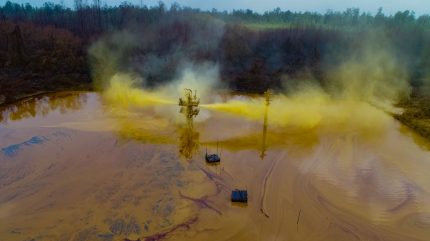
Shell needs to take “responsibility for its toxic legacy of pollution” and safely decommission its abandoned oil infrastructure before divesting from the onshore oil industry in the Niger Delta, a report on Shell’s environmental impact said.
A report by the Somo published on 27 February criticised international companies for exiting the Niger Delta rapidly with an “inadequate” process, leaving negative environmental and human rights impacts.
On 16 January, Shell announced plans to sell its Nigerian onshore subsidiary, Shell Petroleum Development Company of Nigeria, to Renaissance, a consortium of five companies that includes four exploration and production companies based in Nigeria, for $2.5bn.
According to the report, Shell’s divestment of oil assets in the Delta is “inextricably linked to the energy transition”. It cited a statement by Shell in 2020, which attributed its divestment plans to becoming a net-zero-emissions energy business by 2050.
However, its divestment and strategic pivots in Nigeria show otherwise, Somo said. Shell’s investments are pivoting towards gas, which the report says is “part of a trend that is driving up investment in hydrocarbons even as the climate crisis worsens”.
“Shell sees a bright future in Nigeria with a positive investment outlook for its energy sector. We will continue to support the country’s growing energy needs and export ambitions in areas aligned with our strategy,” Shell’s integrated gas and upstream director, Zoë Yujnovich, said in January.

US Tariffs are shifting - will you react or anticipate?
Don’t let policy changes catch you off guard. Stay proactive with real-time data and expert analysis.
By GlobalDataWhile Layi Fatona, senior executive at ND Western, one of the five Renaissance companies, did not comment on the budgeted clean-up, he told Reuters that the company would follow all legal procedures.
However, Somo’s researchers could not verify whether Shell had established funds to finance decommissioning of the oil mining leases it had sold. The report called Shell’s divestment approach through a certification process that claims it has cleaned up oil spills “deeply flawed”.
“Scattered across the landscape of the Niger Delta are abandoned pipelines, well heads and other oil infrastructure that are a disaster waiting to happen,” Somo said in the report.



